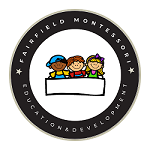Montessori Infant Program
Designed for children aged 0-2, the Montessori Infant Program offers avenues for learning through movement, exploration, and connection. The learning objectives for infants concentrate on movement skills, language development, achieving developmental milestones, fine motor development, social skills, and fostering the joy inherent in every child.
Learning in the Infant Community
Within the Montessori Infant Program, children experience a nurturing learning environment filled with educational materials tailored to their specific developmental needs and interests during the initial two years of life.
At this developmental stage, infants navigate sensitive periods for movement, hand-eye coordination, language, order, small objects, and toilet training. The layout of the infant classroom, along with its educational materials, reflects these interests and provides abundant learning opportunities.
Likewise, the daily routine caters to the need for consistency and repetition within this age group while embracing individual needs, interests, developmental stages, and learning styles.
Upon completing the Infant Program, children transition to the Montessori Toddler Program, where they receive a formal introduction to all five areas of the Montessori Curriculum
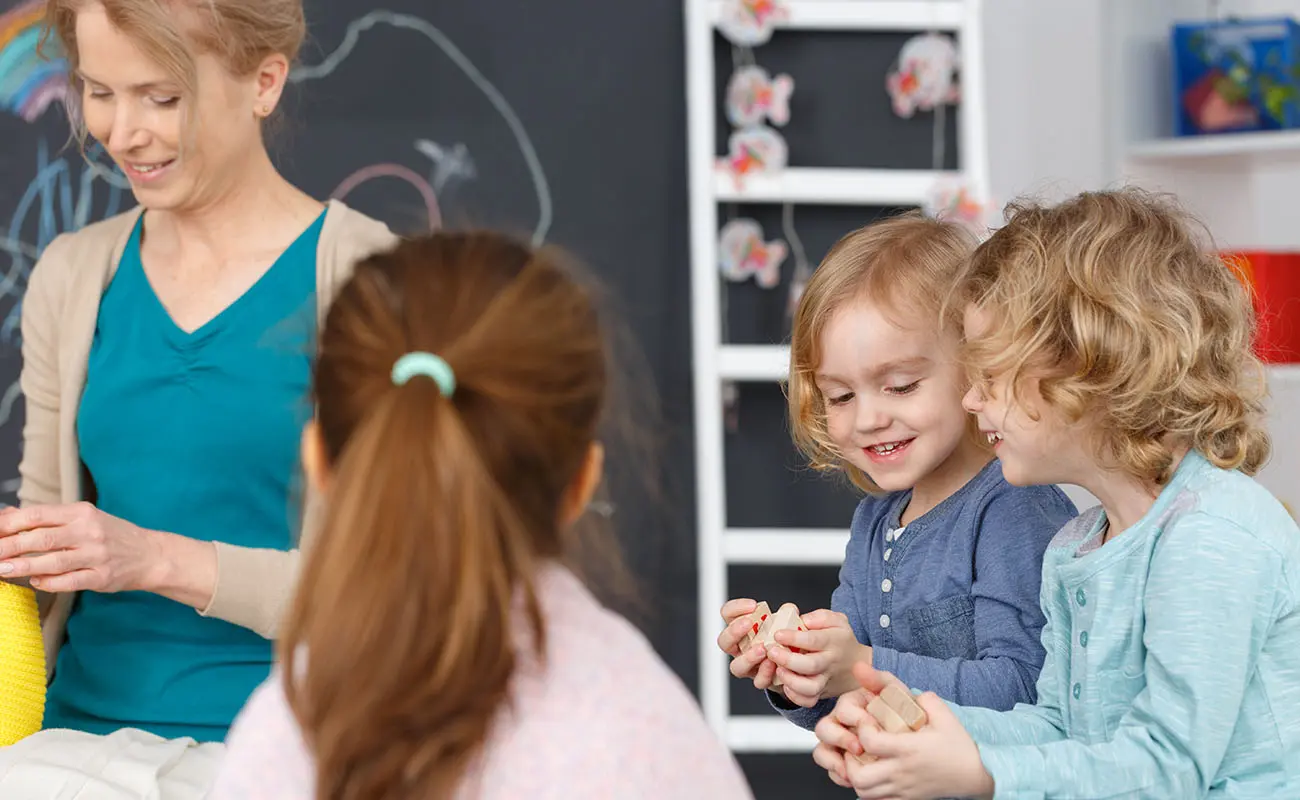
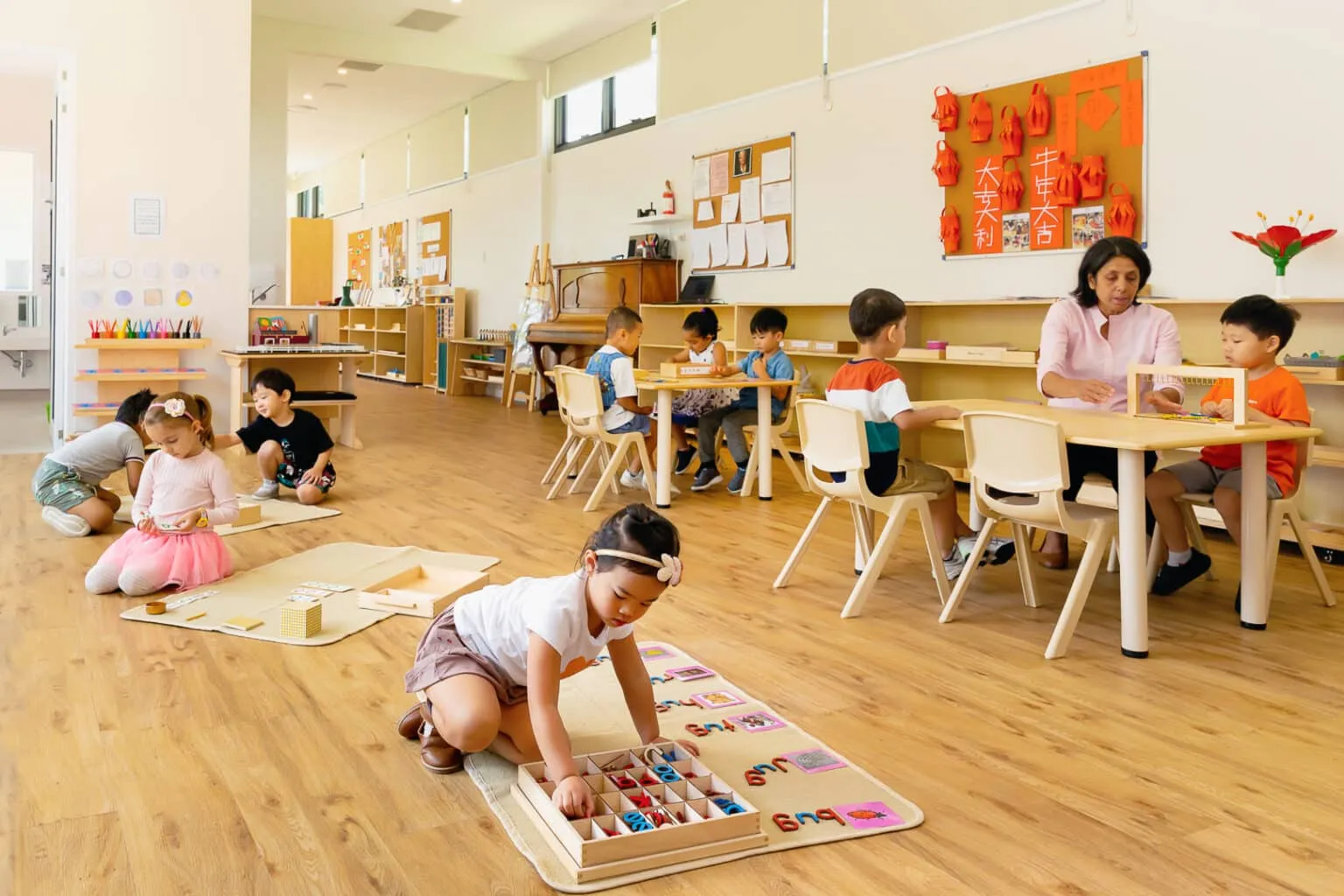
Infant Learning Goals
- Uses simple gestures to communicate
- Explores objects in different ways
- Chooses an activity and packs it away
- Plays alongside others
- Knows the names of body parts, colors, and shapes
- Beginning to use one to two word phrases
- Demonstrates independence skills such as self-feeding
- Achieving physical development milestones such as crawling, walking, climbing and jumping
Infant Curriculum
Infant Curriculum
The Practical Life Curriculum provides infants with opportunities to practice daily life skills such as self-feeding, cleaning, dressing, washing and self-care.
Example materials and activities include:
- Treasure baskets
- Fabric matching
- Spooning
- Pegging
- Nesting objects
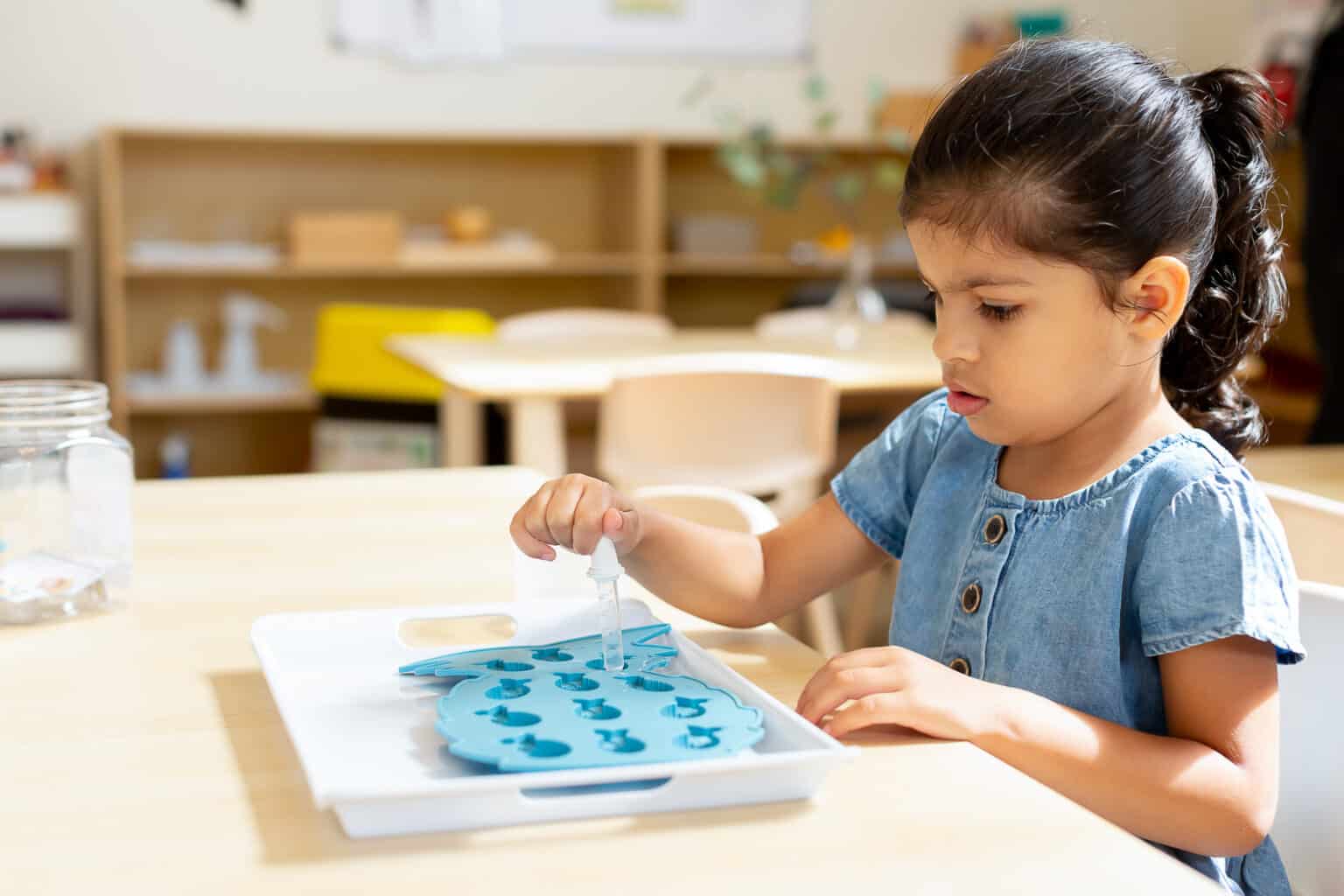

Sensorial
The Sensorial Curriculum assists in refining the senses of sight, sound, touch, taste and smell. Through sensorial materials children develop the ability to discriminate by size, colour, and texture.
Example materials and activities include:
- Imbucare object permanence boxes
- Three discs on the vertical dowel
- 3D object fitting exercise
- Sensory balls
- Puzzles
Movement Skills
Infants learn through movement and exploration. Learning goals for infants include healthy physical development. Through the Infant Curriculum, children develop fine motor, gross motor, and fundamental movement skills.
Example materials and activities include:
- Tummy time
- Visual mobiles
- Stair climbing
- Bead maze
- Pull toy and rolling toy
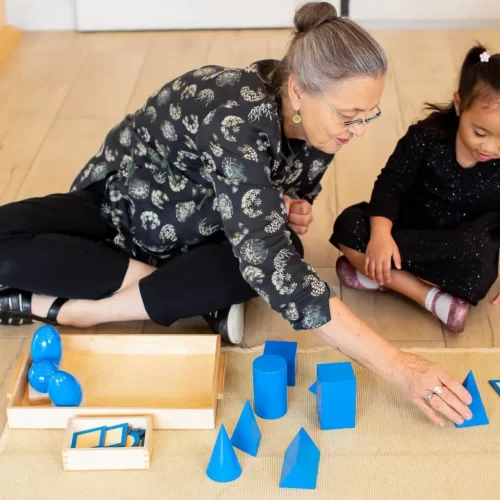

Language
The Montessori Language Curriculum introduces infants to spoken and written language. Children use language materials to explore names, sounds, songs and music.
Example materials and activities include:
- Color and object matching cards
- Object picture matching
- Reading
- Puppets
- Music and songs
Wellbeing
Children’s happiness and wellbeing is at the core of everything we do. The Infant Curriculum nurtures children’s potential through positive, warm interactions, and collaborative partnerships with families. This includes respecting and valuing each family’s culture, beliefs, parenting style, and preferences for their child.
Each child’s individual eating and sleeping schedule can be accommodated
Breastfeeding and supplying expressed breastmilk is welcome
Cloth nappies can be accommodated
Families are supported and invited to contribute to the program

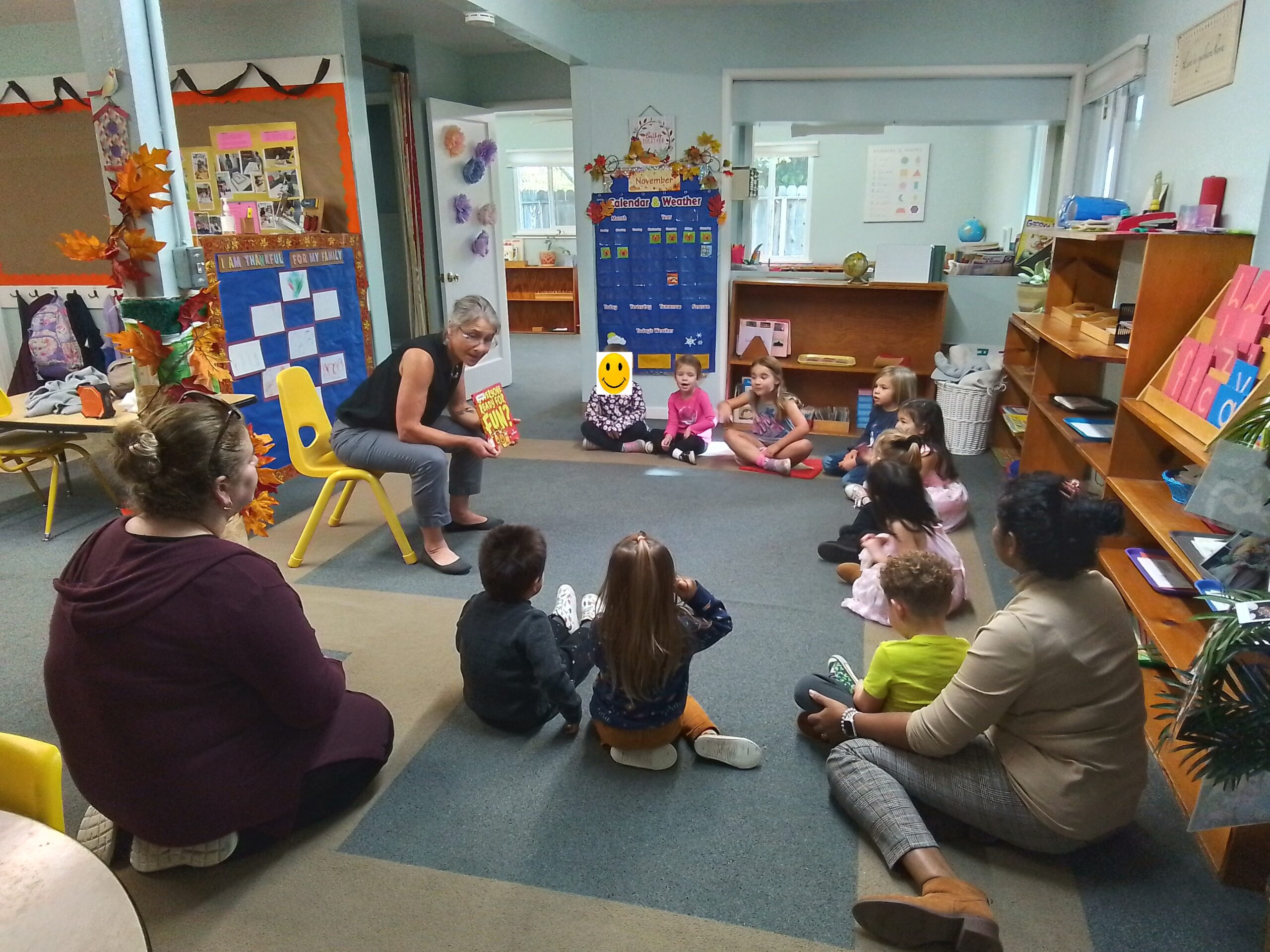
Early Years Learning Framework
The Montessori Curriculum and the Australian Government’s Early Years Learning Framework (EYLF): Belonging, Being & Becoming work together to nurture children’s potential. The EYLF incorporates five outcomes:
Outcome 1: Children have a strong sense of identity
Outcome 2: Children are connected with and contribute to their world
Outcome 3: Children have a strong sense of wellbeing
Outcome 4: Children are confident and involved learners
Outcome 5: Children are effective communicators
Infant Daily Routine
The infant routine outlines the typical daily flow for children aged six weeks to two years in the Montessori infant community. The infant’s daily routine provides a consistent pattern of activities for learning time, meals, rest, and outdoor play. The predictability of the routine helps children to feel secure and positively influences their emotional, cognitive, and social development.
Infant Daily Routine
The infant routine outlines the typical daily flow for children aged six weeks to two years in the Montessori infant community. The infant’s daily routine provides a consistent pattern of activities for learning time, meals, rest, and outdoor play. The predictability of the routine helps children to feel secure and positively influences their emotional, cognitive, and social development
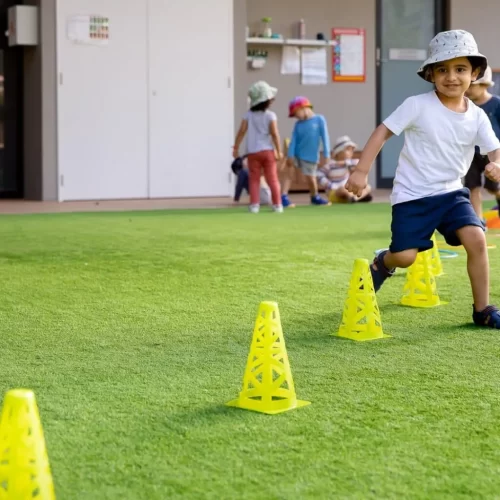
Where Comes next? Exploring the Toddler Program
The Montessori Toddler Program is active, self-paced, and involves learning using all five senses. Children are introduced to the five areas of the Montessori Curriculum, including: Practical Life, Sensorial, Mathematics, Language and Culture. They develop competence through repetition and practice.
